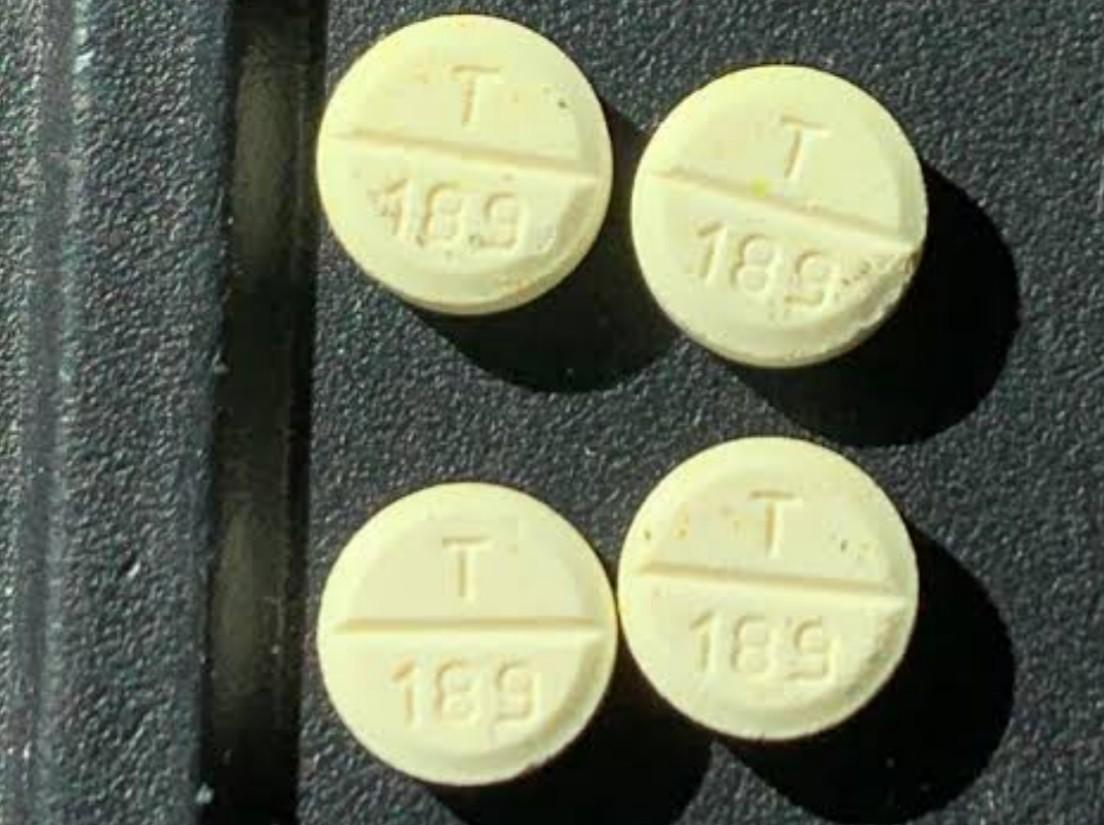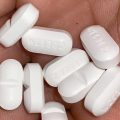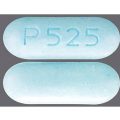The yellow, round pill with the imprint T 189 has been identified as Oxycodone Hydrochloride 30 mg. It is supplied by Camber Pharmaceuticals, Inc.. Oxycodone 30 mg is classified as a Schedule 2 controlled substance under the Controlled Substance Act (CSA).
Oxycodone is used to relieve moderate to severe pain. Oxycodone extended-release tablets and extended-release capsules are used to relieve severe pain in people who are expected to need pain medication around the clock for a long time and who cannot be treated with other medications. Oxycodone is in a class of medications called opiate (narcotic) analgesics. It works by changing the way the brain and nervous system respond to pain.
How to use T 189 pill
Read the Medication Guide provided by your pharmacist before you start taking oxycodone and each time you get a refill. If you have any questions, ask your doctor or pharmacist.
Take this medication by mouth as directed by your doctor. You may take this drug with or without food. If you have nausea, it may help to take this drug with food. Ask your doctor or pharmacist about other ways to decrease nausea (such as lying down for 1 to 2 hours with as little head movement as possible).
Avoid eating grapefruit or drinking grapefruit juice while using this medication unless your doctor or pharmacist says you may do so safely. Grapefruit can increase the chance of side effects with this medicine. Ask your doctor or pharmacist for more details.
If you are using the liquid form of this medication, carefully measure the dose using a special measuring device/spoon. Do not use a household spoon because you may not get the correct dose. Ask your doctor or pharmacist if you are not sure how to check or measure the dose.
The dosage of T 189 pills is based on your medical condition and response to treatment. Do not increase your dose, take the medication more frequently, or take it for a longer time than prescribed. Properly stop the medication when so directed.
Pain medications work best if they are used when the first signs of pain occur. If you wait until the pain has worsened, the medication may not work as well.
If you have ongoing pain (such as due to cancer), your doctor may direct you to also take long-acting opioid medications. In that case, this medication might be used for sudden (breakthrough) pain only as needed. Other pain relievers (such as acetaminophen, ibuprofen) may also be prescribed with this medication. Ask your doctor or pharmacist about using oxycodone safely with other drugs.
Suddenly stopping this medication may cause withdrawal, especially if you have used it for a long time or in high doses. To prevent withdrawal, your doctor may lower your dose slowly. Tell your doctor or pharmacist right away if you have any withdrawal symptoms such as restlessness, mental/mood changes (including anxiety, trouble sleeping, thoughts of suicide), watering eyes, runny nose, nausea, diarrhea, sweating, muscle aches, or sudden changes in behavior.
When this medication is used for a long time, it may not work as well. Talk with your doctor if this medication stops working well.
Though it helps many people, this medication may sometimes cause addiction. This risk may be higher if you have a substance use disorder (such as overuse of or addiction to drugs/alcohol). Take this medication exactly as prescribed to lower the risk of addiction. Ask your doctor or pharmacist for more details.
Tell your doctor if your pain does not get better or if it gets worse.
What are the side effects of T 189 pills?
T 189 pills may cause side effects. Tell your doctor if any of these symptoms, are severe or do not go away:
- dry mouth
- stomach pain
- drowsiness
- flushing
- headache
- mood changes
Some side effects can be serious. If you experience any of these symptoms, call your doctor immediately or get emergency medical help:
- changes in heartbeat
- agitation, hallucinations (seeing things or hearing voices that do not exist), fever, sweating, confusion, fast heartbeat, shivering, severe muscle stiffness or twitching, loss of coordination, nausea, vomiting, or diarrhea
- nausea, vomiting, loss of appetite, weakness, or dizziness
- inability to get or keep an erection
- irregular menstruation
- decreased sexual desire
- chest pain
- hives
- itching
- rash
- swelling of the face, throat, tongue, lips, eyes, hands, feet, ankles, or lower legs
- hoarseness
- difficulty breathing or swallowing
- seizures
- extreme drowsiness
- lightheadedness when changing positions
Oxycodone may cause other side effects. Call your doctor if you have any unusual problems while you are taking this medication.





